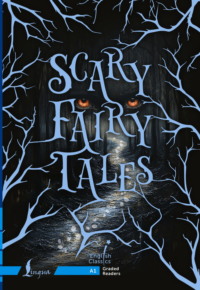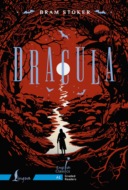Kitabı oku: «Scary Fairy Tales. A1 / Страшные сказки»
© Мартиросян А. В., словарь, адаптация, упражнения, 2025
© ООО «Издательство АСТ», 2025
Hansel and Gretel
A poorwoodcutterwith his wife and his two children lived next to a great forest. The boy's name was Hansel and the girl's name was Gretel. The woodcutter had little to eat, and once, when a great hunger came to the land, he could no longer feed his family.
One evening he was lying in bed and thinking about his problems. Then he said to his wife, “What will happen to us? How can we feed our children when we have nothing to eat?”
“Man, do you know what?” answered the woman. “Tomorrow morning we will take the children into the woods, make a fire for them, and give each of them a little piece of bread, then leave them and go to our work. They will not find their way home, and we will not have to feed them anymore.”
“No, woman,” said the man. “I will not do that. How could I leave my own children alone in the woods? Wild animals would kill them.”
“Oh, you fool,” she said, “then all four of us will die from hunger.” And shescoldedhim until he agreed.
“But I do feel sorry for the poor children,” said the man.
The two children could not sleep because of their hunger, and they heard the conversation between thestepmother and the father.
Gretel cried and said to Hansel, “It is over for us!”
“Be calm, Gretel,” said Hansel, “and don't worry. I know what to do.”
When the adults were sleeping, he got up, put on his jacket and went outside. The moon was shining brightly, and the white little stones in front of the house were sparkling like silver coins. Hansel filled all of his jacket pockets with them.
Ücretsiz ön izlemeyi tamamladınız.








